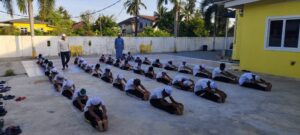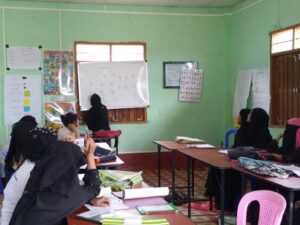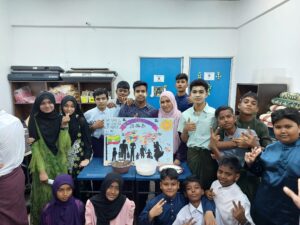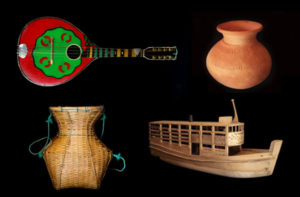In the refugee camps of Cox’s Bazar, education tours have become an innovative way to provide Rohingya children with enriching experiences beyond the confines of the camp. These tours, organized by humanitarian organizations and educational programs, aim to broaden the children’s perspectives, inspire curiosity, and enhance their learning by exposing them to new environments and real-world experiences.
Given the limited access to formal education in the refugee camps, education tours provide a unique opportunity for children to connect what they learn in the classroom with the world around them. These tours typically involve visits to local schools, community centers, environmental projects, or cultural landmarks. While the primary goal is educational, these tours also serve to uplift the children’s spirits, giving them a chance to enjoy a change of scenery and break away from the often stressful conditions of camp life.
For many Rohingya children, this is their first opportunity to leave the camp and see the outside world. Visits to local farms, health clinics, or educational institutions help children learn about agriculture, hygiene, sustainability, and community building. In some cases, they may even visit workshops or art exhibitions where they can witness creativity and craftsmanship, further fueling their imagination and encouraging them to think about their own futures.
In addition to the educational value, these tours promote social cohesion and teamwork. Children are typically taken in groups, allowing them to interact with peers from different parts of the camp, strengthening friendships, and fostering a sense of community. The shared experiences of the education tour also create lasting memories and give the children something positive to talk about, helping them build resilience in the face of adversity.
During these education tours, local teachers, community leaders, or volunteers often serve as guides, explaining key lessons and linking the experiences of the trip with classroom learning. This practical learning experience is especially valuable for children who have limited access to traditional schooling or have had their education disrupted due to the ongoing crisis. Through hands-on activities and real-world exposure, the children are not only gaining academic knowledge but also critical life skills that will help them thrive in the future.
Moreover, education tours help build awareness of important issues such as environmental sustainability, health practices, and social responsibility, which are crucial in a refugee setting. For example, a visit to a water filtration plant may teach children about clean water, while a tour of a community garden can educate them on agriculture and food security.
For the organizations involved, these education tours are a reminder of the importance of creating holistic, well-rounded educational experiences for children, even in challenging circumstances. They emphasize that education is not limited to textbooks and classrooms but extends to experiences that shape the child’s worldview, encourage critical thinking, and foster a love for learning.
Ultimately, education tours for Rohingya children in the camps are more than just outings—they are powerful tools for healing, learning, and hope. By giving children the opportunity to see and understand the world beyond the camp, these tours help to expand their horizons and inspire them to envision a brighter future.





